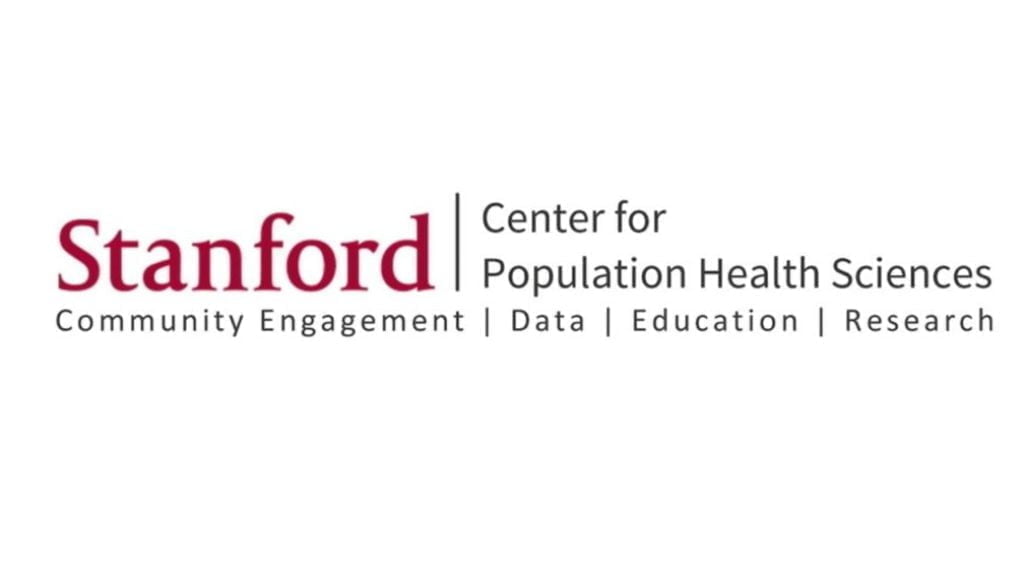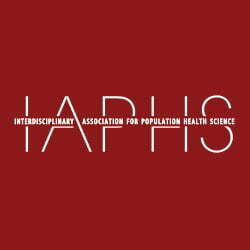Institutional Member Spotlight: Stanford Center for Population Health Sciences
IAPHS StaffThis month’s institutional member profile features the Stanford Center for Population Health Sciences (PHS). Housed at Stanford University, PHS includes over 1,920 members including faculty, students, trainees, and affiliated researchers.
Founded in 2015, the Center’s mission is to improve individual and population health by bringing together diverse disciplines and data to understand and address social, environmental, behavioral, and biological factors on both a domestic and global scale. Their overall strategy is built on four pillars:
- Collaboration and Community – Fostering partnerships and transdisciplinary research
- Research Resources – Providing a portal for data discovery and analysis to enable research
- Translation – Turning research into application
- Education and Training – Teaching and disseminating research
The Center is interdisciplinary by design to address the complex challenges in population health sciences. Faculty and fellows represent the fields of medicine, public health, computer science, economics, education, and the humanities. These researchers collaborate across disciplines and organizations to conduct research on issues such as opioid-related mortality, maternal and child health, mental health, health care services and access, aging issues, and much more. Here’s a closer look at a few of the research projects conducted at the Center:
Diseases of despair: A recent study from postdoctoral research fellow Matt Kiang found that the mortality rate from synthetic opioids in 28 states more than doubled every two years from 1999 to 2016. Read the full article and news coverage.
Maternal health in California: To understand why the rate of severe maternal morbidity is increasing in California, postdoctoral research fellow Stephanie Leonard and colleagues examined data from 2007–2014, finding that pre-pregnancy health and cesarean delivery are important risk factors for severe maternal morbidity but do not explain an increasing trend of severe maternal morbidity in the state. Read the full article.
Stress disorders and dementia: In partnership with Danish researchers, PHS faculty published a study finding that a stress disorder diagnosis was associated with as much as a nearly three-fold increase in the rate of developing dementia among Danish residents.
Gender, blue collar work, and depression: A recent article from Holly Elser, a Stanford Medical Student and UC Berkeley doctoral student, used data from the American Manufacturing Cohort (AMC) to examine the joint implications of gender and occupational class for workers’ mental health. Study results suggest that blue-collar women may be uniquely susceptible to depression but that blue-collar workers may encounter barriers to care-seeking related to mental illness other than their insurance status. An accompanying commentary from Dr. Carles Muntaner places the results of this study in the broader conversation of how the workplace, in addition to being a vehicle for mobility, may also be a generator of health inequities. Read a cohort profile on the AMC here.
In addition to the research conducted at Stanford, PHS recently announced the recent opening of a global center in Mumbai, India. The center’s vision is to radically improve the health and economic well-being of Indians through novel research, training the next generation of health and development scholars in India, and connecting research to policy. Learn more about the initiative here.
The Center also has several prestigious graduate programs and post-doctoral fellowship opportunities for interdisciplinary scholars, as well as a robust data portfolio for researchers in population health sciences.
From postdoc Stephanie Leonard, PhD:
“PHS has been my academic home during my postdoctoral fellowship in perinatal epidemiology. The commitment of PHS to training junior researchers has been exceptional. The Center has fostered a highly collaborative group of postdocs from a wide ranging of disciplines, which has broadened my perspective and approach to population health research. In addition to building collaborations, PHS provides us with extensive faculty mentorship, access to population health data, and professional development tailored to junior population health scientists. These resources have been invaluable to me in conducting research that advances the health of birthing persons, infants, and children.”
Dr. Mark R. Cullen is the Director of the Center for Population Health Sciences, as well as Senior Associate Vice Provost for Research, Professor of Medicine (Primary Care and Population Health), of Biomedical Data Science, of Health Research and Policy (Epidemiology) and Senior Fellow at the Stanford Institute for Economic Policy Research (SIEPR).






All comments will be reviewed and posted if substantive and of general interest to IAPHS readers.